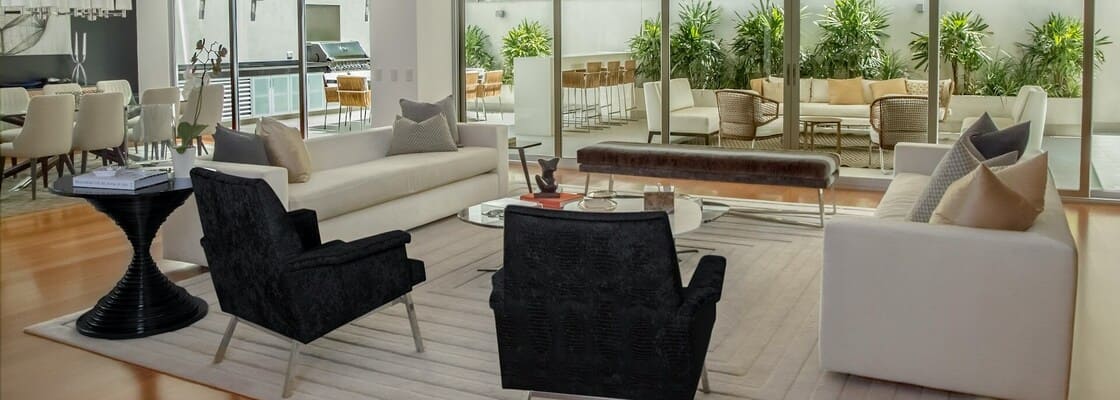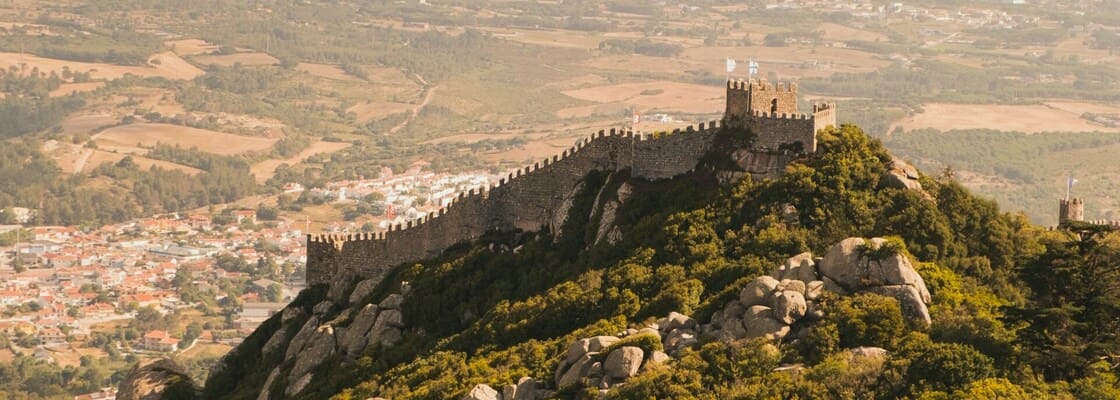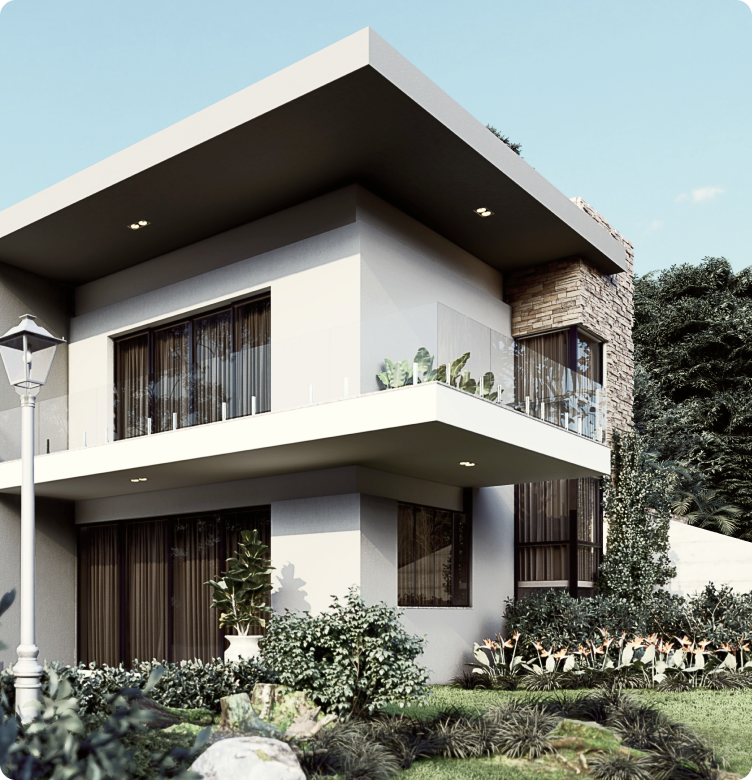Renowned for its beauty, from the vibrant capital of Lisbon to the highly sought-after Algarve, the Portuguese real estate market is attracting expats and investors from all walks of life. Buying property in Portugal has become a hot topic in recent years, from families looking for a better quality of life to investors seeking a prime investment opportunity in one of Europe’s most dynamic markets.
In this expert guide to buying property in Portugal, we will delve into the property purchasing process in Portugal. We will provide foreign buyers with clear and practical advice on purchasing property in Portugal, alongside crucial information needed to secure an excellent financial investment.
Exploring Portugal's Real Estate Market

Lisbon, the Algarve region, and Porto are the main areas of Portugal, attracting foreign buyers interested in property rental and purchasing property, although the market has significantly diversified in recent years, and continues to do so. The Silver Coast, the Alentejo, the North, and the Center of Portugal are now firmly on the radar of expats looking to explore the lesser-known gems of Portugal.
According to the Portuguese Chamber of Commerce in the UK, the foreign resident population in Portugal has recently increased to 781,915 non-EU citizens, indicating the growing number of expats moving to Portugal and fuelling foreign investments in Portugal’s property market and the Portuguese economy.
Property prices in Portugal
As in any country, when buying property in Portugal, property prices will vary according to property type, the property’s location and property value.
Property prices in Portugal will vary considerably depending on where you buy. The average asking price for the Lisbon Metropolitan Area in 2023 was €4,061 per square meter. In the Porto Metropolitan Area, the average asking property price stood at €3,291, while prices stood at €3,897 and €2,685 in the Algarve and the Alentejo, respectively.
Prices in the north of Portugal are very affordable, with the average asking price standing at €1,740, while prices in the center were only slightly higher, clocking in at €1,864.
Rental yields in Portugal
Foreign ownership of property in Portugal proved to be quite a lucrative investment. Rental yields in the Lisbon Metropolitan Area stood at 6.7 percent in the third quarter of 2023, while rental yields for the Porto Metropolitan Area stood at 6 percent. If you are looking to invest in the Algarve, rental yields in this beautiful, sun-drenched region in southern Portugal stood at 5.6 percent.
Key reasons to buy property in Portugal
Besides the high quality of life and the prospects of making a profitable investment in the property market, buying Portugal real estate has many key advantages, which include:
- No restrictions on non-EU citizens considering renting or buying property in Portugal
- Investing in a dynamic market with a high return on investment potential
- Low cost of living compared with other European countries
- Incredible climate with incredible summers and mild winters
- Top-quality education with 51 international schools in the country and a high-quality healthcare system
Can foreigners buy property in Portugal?
Foreign buyers can purchase property in Portugal, with there being no restrictions on foreign ownership of property. With the assistance of a buyer’s agent or a real estate agent, and a real estate lawyer, a successful property purchase in Portugal will be a relatively easy process.
Even though professional real estate assistance is not a strict requirement, it is highly recommended to work alongside a Portuguese lawyer and a real estate agent when buying property in Portugal. It’s important to note that, while a real estate agent works on behalf of the seller and will therefore secure a higher commission, a buyer’s agent works solely on behalf of the buyer, ensuring their needs are protected and that they secure the best possible price for the property, assisting them with the negotiation stages.
If you are planning to relocate and seek residence in Portugal, you will need to secure residence in the country through one of the visa options the Portuguese government offers, which we will explore later in this article.
Top Locations to Buy Property in Portugal

Portugal has a diverse property market. Where you choose to buy property will depend on your personal preference and requirements, whether you are looking for a charming city apartment or beach villa with splendid ocean views.
In this section, we’ll provide you with a rundown of the top locations to consider buying property in Portugal.
Lisbon
Lisbon, the bustling capital of Portugal, has been delighting tourists and expats for years, the perfect mix between modernity and tradition. In the heart of the city, Baixa and Chiado are top picks for investors looking to capitalize on their investment, with many properties here coming with stunning views of the River Tejo. Príncipe Real is a calm area, a stone’s throw from the center, where locals and expats can be seen out in the parks or exploring the many boutique shops that line the streets. You will also find a number of Lisbon luxury real estate options in this area.
For families, Lapa, Estrela, and Parque das Naçōes are good options to consider. Lapa and Estrela provide residents with peace and quiet, where you’ll be able to enjoy lovely parks and are just a short drive from the beaches on the Portuguese Riviera, such as Carcavelos.
Parque das Naçōes, unlike anywhere else in the city, is located to the northeast of Lisbon, home to open spaces, river views, and some of the best restaurants in the city. This futuristic looking neighborhood is reminiscent of Canary Wharf in London. You also have the Lisbon Aquarium here, the perfect day out for the family.
Cascais
Cascais, situated just a 30-minute drive from Lisbon, is a favorite with celebrities and lifestyle buyers. Famous for its beautiful beaches, fine dining establishments, and vibrant cultural offerings, Cascais offers a wide range of golf courses, a bustling marina and is next to the Cascais Sintra Natural Park, home to the Castle of the Moors and Pena Palace, perfect for history and nature lovers. You’ll find a wide range of luxury properties here, from modern apartments to mansions with sea views.
Porto
Over the years, Porto, Portugal’s second-largest city, has undergone a significant transformation, now rivaling Lisbon in popularity and allure. Porto boasts charming narrow streets, delightful riverside eateries, and chic boutique shops, making it a top destination in its own right and has evolved to become one of the most sought-after locations for luxury buyers.
There is an array of lovely neighborhoods in Porto, from Bonfim, one of the coolest neighborhoods and favored by creative types, to the historic center, where you’ll be able to live and breathe the heart of the city. A top neighborhood to consider for families is Foz do Douro, where you have several large houses with beautiful views of the Atlantic Ocean and access to all the amenities you could need, including easy access to top international schools.
For investors, Porto is experiencing increased demand for long-term rentals, driven by students, remote workers, and young professionals heading to the city. This makes investing here an appealing prospect offering promising rental returns.
Algarve
The Algarve, home to one of the most stunning coastlines in the world, attracts expats from across the world. Retirees, families, investors, digital nomads have all graced the southernmost region of Portugal to take in the glorious beaches, sublime climate, and incredible gastronomy.
Beyond its natural allure, the Algarve boasts world-class golf resorts and is the perfect spot for watersports enthusiasts. Destinations like Faro, Albufeira, and Lagos hold particular appeal for property investors, while the Golden Triangle of Quinta do Lago, Vale do Lobo, and Vilamoura is the place to buy for luxury buyers.
Silver Coast
The Silver Coast (Costa de Prata) stands as an enchanting haven celebrated for its beautiful beaches, quaint towns, and authentic Portuguese lifestyle. Nestled between Lisbon and Porto on the Western Coast, this region boasts rugged cliffs, glistening sands, and picturesque fishing hamlets. Surfers will find this is one of the best spots in Europe to hone their craft, while the big waves of Nazaré tempting big-wave surfers from across the world.
For affluent buyers seeking an exclusive slice of Portuguese charm amidst breathtaking vistas, the Silver Coast is an emerging location for luxury buyers to find exceptional properties at affordable prices, when compared with luxury properties in other Western European countries.
Madeira and the Azores
Madeira and the Azores, the two autonomous islands of Portugal, are very different. A commonality, however, is that both have some of the most stunning landscapes you will ever see. From the green rolling hill of the Azores, renowned for its hot springs and incredible local cuisine, to Madeira, the perfect spot for those looking for a permanently beautiful climate, where you’ll be able to marvel at the ocean views each day, these islands are now getting the recognition they deserve.
Madeira is the more built up of the two, where the cosmopolitan capital, Funchal, is home to some truly spectacular properties. The Azores is less developed, where you’ll find most luxury properties on the islands of São Miguel and Terceira.
South West
Comporta, known as the “Hamptons of Europe,” has gained attention from top international designers and celebrities in recent years, with nearby Melides also emerging as one of the in-vogue locations at the moment. Here, traditional Alentejan architecture is blended effortlessly with modern designers to create eco-friendly buildings that look stunning.
Troía, close by, with its endless sandy beaches, five-star hotels, and internationally renowned restaurants, is also worth considering, particularly for property investments. If you are looking for one of the most up-and-coming areas in the country, where luxury properties are pushing the limits of innovation and design, then check out the South West of Portugal.
Visa and Immigration Options When Buying Property in Portugal

For non-EU citizens, buying property in Portugal no longer qualifies as an eligible option for the Portugal Golden Visa program. However, the Portugal Golden Visa program remains a popular and easy visa option of obtaining a residence permit in Portugal, with several investment routes still available, such as the investment fund option.
Alternative visa options for foreign property buyers who choose to relocate to the sunny shores of Portugal include the D7 Visa (Retirement or Passive Income Visa) and the Digital Nomad Visa.
How to Buy Property in Portugal
Now that you have an idea of property prices in Portugal and where to purchase real estate, whether you’re looking to buy residential properties or commercial properties, here we will delve into the property-buying process. In the table below, we guide you through the essential steps and legal intricacies involved in buying property in Portugal. The table will guide you through each step and explore property tax, additional property costs like stamp duty, estate agent fees, and mortgage loans, as well as discuss the promissory contract and finalizing the deed signing.
Steps | Details |
Step 1: Obtaining a Portuguese Tax Number | Non-EU citizens and EU citizens purchasing property in Portugal will need a NIF, the Portuguese tax number, to open a bank account and complete financial transactions in Portugal. If you are a non-EU citizen, you will need a fiscal representative to apply online or at the local tax office. |
Step 2: Secure financing for your property | Assess your finances, explore mortgage options from Portuguese banks, and understand associated costs such as taxes, legal fees, and property registration expenses. |
Step 3: Finding a property | Set a budget and research the Portuguese real estate market, focusing on location, amenities, and rental potential. Seek guidance from real estate professionals like buyer’s agents or real estate agents. |
Step 4: Purchasing the Property | Once you find a suitable property, negotiate an offer with the seller, potentially facilitated by a real estate professional. Consider having a buyer’s agent representing your best interests during negotiations. |
Step 5: Signing the Promissory Contract (CPCV) | After an offer is accepted, a Reservation Agreement may require a refundable fee. The Promissory Contract (CPCV) finalizes the deal, often with a 10 percent deposit, signed in front of a Notary. |
Step 6: Signing the Escritura | The Escritura, or Final Deed, officially transfers property ownership. Signed before a Notary, it involves paying remaining balances and fees. After signing, the buyer becomes the official owner, concluding the process. |
Step 7: Paying Fees and Complying with Property Tax Obligations | There are other costs involved besides the standard property prices including legal fees, property taxes, property transfer tax, and possibly capital gains tax if you ever decide to sell the property. |
Types of Luxury Property in Portugal
One of the allures for luxury buyers looking to snap up property in Portugal is the wide array of property types that you will come across.
Luxury properties include:
- Contemporary villas and beachfront homes
- Luxury apartments and penthouses
- Golf course properties
- Mansions and countryside homes
- Historic estates, palaces, and castles
- Farms, equestrian properties, and vineyard estates in wine regions like Douro Valley
If you are looking to buy luxury property in Portugal, determine what type of property you would like to buy. From the north to the south of the country, there are countless options. A good starting point is to consider the location – do you want to be in a bustling city, by the coast, or in the countryside? Also, consider where the closest school is if you are moving with children.
Requirements for a Successful Foreign Property Ownership

An essential part of the process when buying real estate in Portugal is applying for a Portuguese NIF number and opening a bank account. These two requirements will also come in handy for any other transactions you need to complete in the country.
Portuguese tax number
When foreigners buy property in Portugal, they will need a NIF, a personal Portuguese tax number, to open a bank account in Portugal and for financial transactions in the country. You can apply for the NIF number yourself at your local tax office or get an attorney to assist you and be your fiscal representative. As a non-EU citizen, you will need to have a fiscal representative for this process.
Portuguese bank account
When buying property in Portugal, it is recommended that you open a Portuguese bank account to avoid hefty international transaction fees when making your purchase. There are a variety of Portuguese banks to consider, many of which offer mortgages to foreign buyers as well.
Required Documents for Buying Property in Portugal
When it comes to buying a property in Portugal, you will need the following documents:
- Photo ID: A valid identification document that verifies your identity
- Contrato Promessa de Compra e Venda (CPCV): The buying contract or property deed that outlines the terms and conditions of the property purchase
- Energy Certificate: This document provides information about the energy efficiency of the property and must be presented to you by the seller
- Imposto de Selo: The stamp duty payment, which is a tax required by the Tax Authority for property transactions
- Caderneta Predial: The land registry document that contains information about the property, including its location, boundaries, and registered owner
Financing Your Property
If you’re seeking financial support for purchasing property in Portugal, you’ll find a diverse array of financing solutions available in Portugal. More than 15 banks cater to international buyers, offering various lending options. Engaging with a mortgage broker will help you find the most suitable lending conditions based on your requirements.
For Portuguese tax residents, the Loan-to-Value (LTV) ratio can extend up to 90 percent for primary residences, decreasing to 80 percent for vacation homes. This calculation is based on the lower of the purchase price or the bank’s appraisal.
For non-residents in Portugal is lower and the maximum LTV ratio typically falls within the range of 60 to 70 percent, although there may be slight discrepancies between different banks.
Property Management
When purchasing property in Portugal, you should consider working with a trusted property management company if you’ll be abroad for extended periods of time. Your property is a valuable asset, and you’ll want to ensure the property is well looked after. When selecting a property management firm, prioritize those with experience assisting expats.
A valuable strategy is to seek recommendations. If you know individuals who’ve engaged property management services in the Portugal previously, makes sure to ask them about the company they worked with and pitfalls to watch out for.
Reach out to your shortlisted options, asking targeted questions about their expertise, addressing any uncertainties, and inquiring about their pricing structure.
Property Purchase Costs
In addition to the property cost and taxes, you will need to consider the following additional property purchase costs.
- Legal fees: €2000-€5000, depending on the property type, property price, and the complexities of the purchase
- Notary fees: €500 – €1000
- Land registration fees: €250
Property Taxes in Portugal
When buying property in Portugal, you will need to consider taxes that must be paid either at the time of the property purchase or on an annual basis. In this section, we’ll provide you with everything you need to know about taxes in Portugal. For further details, you can consult our Property Taxes in Portugal guide.
Property taxes at the time of purchase
Below are the taxes applicable when purchasing property:
Property Purchase Tax (IMT)
The Imposto Municipal Sobre as Transmissões Onerosas de Imóveis (IMT), or Municipal Tax on Onerous Transfers of Real Estate, is a property transfer tax in Portugal imposed on property acquisitions. This tax is also referred to as the Property Purchase Tax and is levied on the purchase price of the Portugal property.
The IMT tax rate ranges from 0 to 10 percent. The 0 to 8 percent range depends on the property price, location, type, and purpose for which the property will be used – whether a primary residence or holiday home.
The fixed rate of 10 percent applies to property buyers who are connected to territories that benefit from favorable taxation schemes, known as blacklisted jurisdictions. You can use the following sum to work out the tax rate you will pay:
IMT = property value x tax rate x tax deduction
Stamp Duty
At the time of property acquisition in Portugal, Stamp Duty (Imposto do Selo), one of the country’s oldest taxes, will also need to be paid. The Stamp Duty amount you pay depends on the property’s worth and the rate is levied on whichever value is higher between the value of the business or the value of the property. The Stamp Duty rate for purchasing a property in Portugal is 0.8 percent. If the property is donated, the Stamp Duty rate for the transaction will be 10 percent.
Notary fees
Even though this is technically not a property tax, Notary Fees still need to be taken into consideration when purchasing property in Portugal. A Notary is a private entity that will provide you with the official documents to prove you are the new owner of the property. This fee usually falls between €500 and €1,000.
Taxes due on an annual basis
Below are the taxes payable on an annual basis:
Municipal Property Tax (IMI)
The Municipal Property Tax (Imposto Municipal sobre Imóveis) is an annual tax paid by property owners in Portugal. The IMI tax rate varies based on the municipality where the property is located and is calculated based on the Property Tax Value (VPT) and not the purchase price.
The IMI Tax rate typically ranges from 0.3 to 0.45 percent of the VPT for urban properties, while the range can reach 0.5 percent in some cases. The IMI rate applied for rustic buildings is 0.8 percent.
AIMI (Additional to IMI)
AIMI (Additional to IMI) is levied when the property value exceeds €600,000. This tax, applicable post-purchase, comprises three tiers:
- 0.7 percent tax on owning property valued between €600,001 and €1 million
- 1 percent tax on property valued between €1mil and €2 million
- 1.5 percent tax on property if its total value is above €2 million
Capital Gains Tax
If you have purchased a property in Portugal and are looking to sell the property, then you will need to consider Capital Gains Tax.
For non-residents, profits from property sales are subject to a fixed rate of 28 percent. Portuguese residents are also subject to real estate taxes on gains from properties acquired after January 1, 1989. These taxes are calculated based on a scale ranging from 14.5 percent to 48 percent, depending on the individual’s income bracket.
When filing taxes, details such as purchase date, price, and invoices for improvements or maintenance must be included to assess capital gain.
Buying Property in Portugal Pitfalls

Buying property in another country poses an array of challenges. Here are a few of the major pitfalls to bear in mind during the property purchase process in Portugal.
- Due diligence and seeking legal assistance: Navigating legal processes, language, and customs can be complex, especially in a foreign country like Portugal. While it’s not mandatory, engaging an experienced real estate lawyer is highly recommended. They can review contracts, verify the seller’s right to sell, and check for any outstanding debts on the property.
- Location of the property: Verify that the property is situated in a favorable location with access to necessary amenities and services, such as restaurants, schools, hospitals, and so on.
- Taxes: Familiarize yourself with the taxes involved in property transactions when buying property in Portugal, in addition to understanding the taxes that you will be required to pay on an annual basis. Being fully informed about tax obligations can prevent future fines or complications.
- Work with experienced local professionals: Collaborate with seasoned professionals in the local real estate market. They can offer valuable insights, navigate pricing considerations, and recommend suitable property types based on your requirements, ensuring you find the perfect property.
- Agreeing with the vendor: When buying property in Portugal, one of the major pitfalls is agreeing with the vendor to resolve issues and determining who should cover the costs. Ensuring that the deeds are accurate can be a challenging and time-consuming process. Often, real estate agents provide minimal assistance, so it’s crucial to find a reliable and meticulous lawyer to navigate these complexities successfully.
Be Global Properties: How We Can Help You
Portugal is a treasure trove when it comes to properties and you’ll find an array of unique options across the country, whatever property type you are looking for. Whether you are looking for a chic apartment in Lisbon, a spacious country home in the depths of the Alentejo, or a beach villa in the Algarve, you will find Portugal can deliver.
BE Global Properties is here to help you find the property of your dreams. At BE Global Properties, we’ve painstakingly crafted a platform that surpasses conventional standards. It’s more than just a listing service; it serves as an exclusive portal to access some of the most remarkable properties worldwide, many of which can be found in Portugal.
Frequently Asked Questions About Buying Property in Portugal
Do I need a lawyer when buying a property?
Working with a real estate lawyer when buying a house in Portugal as a foreigner is not a strict requirement for investing in property in Portugal. However, professional legal services are recommended if you want your purchase process to be compliant with Portuguese laws and as seamless as possible.
Do I need a real estate agent when buying a property?
What are the additional fees when foreigners purchase real estate in Portugal?
Besides the price of the property, there are other costs that are essential to factor in. These include notary and registration fees, legal fees, property transfer tax (IMT), stamp duty fees, and potential expenses related to municipal property tax and land registry. If you decide to sell the property, you may also have to factor in capital gains tax.
How much do I need for a deposit payment?
How much deposit you pay for purchasing Portugal real estate usually lies between 10 to 25 percent of the purchase price based on the condition that the mortgage offer is accepted. However, to be safe, non-residents and foreign buyers should budget 30 percent of the property purchase price for the deposit payment on a property in Portugal.
Is property cheap in Portugal?
Compared to other countries, Portugal’s real estate prices are reasonable. In 2024, an apartment in the city center costs €3,203 per square meter, while an apartment outside of the city center will cost €2,079 per square meter.
Can the British buy property in Portugal?
There are no restrictions on British nationals buying a house in Portugal. UK citizens can buy residential real estate and commercial real estate in Portugal. There are no restrictions on foreign ownership of property in the country.
How can I find property in Portugal?
To find property in Portugal, after an initial online search for “Portugal buying property” or “Portugal real estate” and getting to grips with Portugal’s real estate market, we recommend speaking with experienced professionals in the field to discuss your requirements. At Be Global Properties, we’ve developed an online platform where we have handpicked the very best properties in the market, making your search for the perfect property that much easier.
Can foreigners buy property in Portugal?
Foreigners can buy property in Portugal. Non-residents enjoy the same property ownership rights as Portuguese citizens. One of the most encouraging qualities of Portugal is that there are no restrictions for foreigners who want to buy a home in the country, and compared to many European countries, Portugal offers reasonable prices for property.
What are the pitfalls of buying property in Portugal?
As in any country, buying property in Portugal presents several pitfalls. Buying property in Portugal pitfalls include navigating legal complexities and unexpected costs and ensuring clear property titles. It’s crucial to engage a local attorney for thorough due diligence to avoid these issues and ensure a smooth transaction process. Understanding these challenges can help buyers make informed decisions and mitigate risks effectively.
How much money do you need to buy property in Portugal?
Property prices in Portugal will vary considerably depending on where you buy. The average asking price for the Lisbon Metropolitan Area in 2023 was €4,061 per square meter. In the Porto Metropolitan Area, the average asking property price stood at €3,291, while prices stood at €3,897 and €2,685 in the Algarve and the Alentejo, respectively.
Is it a good investment to buy property in Portugal?
Foreign investment in Portugal has been increasing rapidly in recent years. Portugal’s stable real estate market and booming tourist sector make it an attractive investment option for investors. Rental yields are high in many parts of the county, enabling you to secure a nice return on your investment. Plus, there are no restrictions on foreign property ownership in Portugal.
Can US citizens buy property in Portugal?
Absolutely! There are no special restrictions for foreigners, so US citizens can freely purchase property in Portugal. Whether you’re looking for a vacation home or a permanent residence, buying a house in Portugal is straightforward for Americans.
How long can you stay in Portugal if you buy a property?
Buying property in Portugal does not allow you to stay in Portugal. To stay in Portugal, you will need to apply for a residency visa, such as the Portugal Digital Nomad Visa, D7 Visa, or Golden Visa. The Golden Visa, once a popular option, no longer includes real estate purchases as a qualifying investment. However, investing in Portuguese property remains a long-term investment opportunity for many foreigners seeking their dream home abroad.
Foreign nationals can still buy houses or land in Portugal, contributing positively to the Portuguese economy. For the Golden Visa application, alternative investment routes include subscribing to Portuguese investment funds with a minimum of €500,000, supporting cultural heritage with €250,000, or advancing scientific research with a €500,000 contribution.
Additionally, creating ten jobs or reinforcing a company’s share capital with at least €500,000, alongside job creation, offers alternative paths to residency. Each option aligns with Portugal’s economic goals while providing pathways for foreigners to establish roots in their Portuguese homes.



